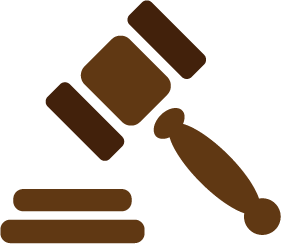Chapter 13 bankruptcy is a form of debt relief, but you do pay back your debts to your creditors. You are not forgiven of your debts, but instead, you are offered a way to pay back your debts with a plan that works best for your income. Chapter 13 bankruptcy is not for everyone; some people do not have the means to qualify for a chapter 13 bankruptcy and instead file a chapter 7 bankruptcy. If you are considering filing for bankruptcy, and you aren't sure how chapter 13 bankruptcy works, read on for further information.
How Does Chapter 13 Bankruptcy Work?
Chapter 13 bankruptcy works as a means to help get you out of debt, while also paying these debts down or off completely. It doesn't simply wipe away your debts. You are given a payment plan that is affordable to you and your income. You may have to exhaust some of your assets in order to pay back these debts, but this is up to the bankruptcy trustee.
Who Qualifies For Chapter 13 Bankruptcy?
Chapter 13 bankruptcy is usually for those that have the means to pay back their debts, but they need a payment plan that is affordable. They may also have the means to pay back their debts using assets they have available to them as well. If you have a lot of assets and still have a pretty good income, but you have a lot of debt, you may qualify for chapter 13 bankruptcy.
How Long Does This Bankruptcy Last?
A chapter 13 bankruptcy usually lasts 7 years. If your bankruptcy is dismissed before this time, there may be an issue with your bankruptcy and you could end up having to start the entire process all over again. You have to follow your bankruptcy lawyer's advice and the bankruptcy trustee's guidelines in order to get through your bankruptcy and get to the discharge so you can be out of debt.
What Kind Of Assets Do You Have To Exhaust?
Depending on your assets and what they are worth, you may have to sell things such as vehicles, sports utility vehicles, stocks/bonds, home(s), collectibles, and anything else that is worth money that you can easily get money from to pay back your debts. This is not something you should do on your own, wait until your bankruptcy trustee advises you do any of these things, as you will need to account for where that money goes.
If you are considering filing for bankruptcy, make an appointment with a bankruptcy attorney for further information regarding bankruptcy, how it all works, and if it is the right choice for you.
Share7 April 2020

If your mountain of debt has grown so tremendous that you can't imagine a way out, then you need to contact a bankruptcy attorney. Even though filing bankruptcy can seem like cheating, it is sometimes the only option when you have consumer or medical debt that is consuming your paycheck and then being left unpaid. An attorney can take a look at your finances and recommend a pathway out of debt utilizing one of the several types of bankruptcy available. Learning more about this process can make it seem more approachable. Dig into the articles on this website to get started with that learning.